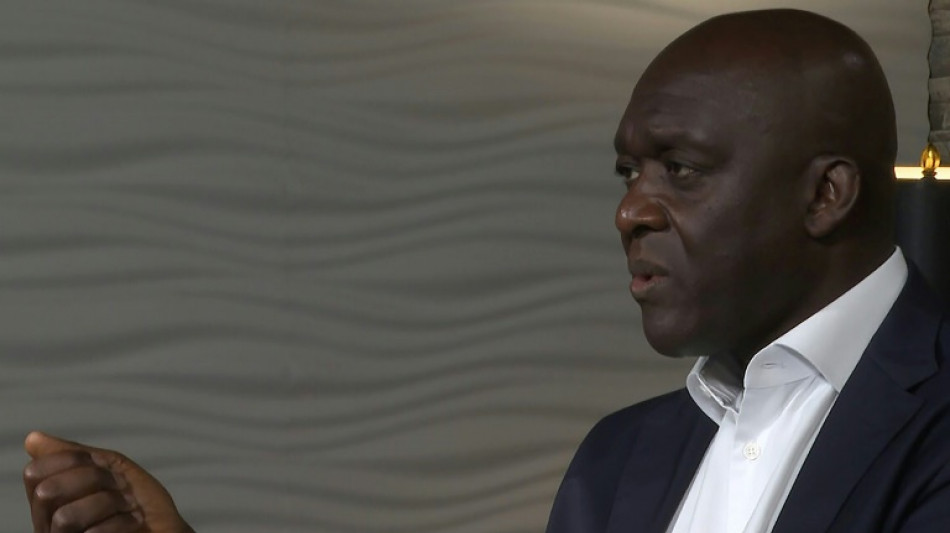
-
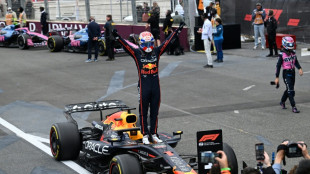 Verstappen wins 'incredible' Azerbaijan GP as Piastri crashes out
Verstappen wins 'incredible' Azerbaijan GP as Piastri crashes out
-
Embattled Turkey opposition re-elects leader at party congress
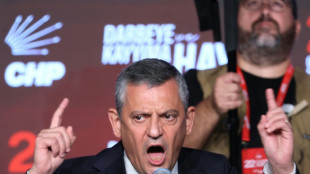
-
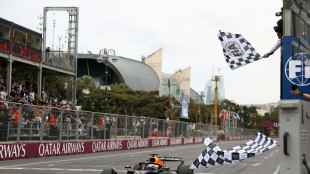 Verstappen wins Azerbaijan GP as Piastri crashes out
Verstappen wins Azerbaijan GP as Piastri crashes out
-
Roma outcast Pellegrini comes in from cold to win derby with Lazio

-
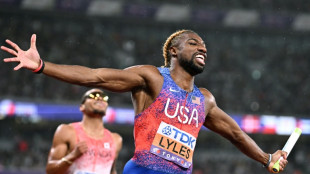 Lyles seals world double as USA men win sprint relay
Lyles seals world double as USA men win sprint relay
-
Jefferson-Wooden completes world sprint treble with US relay win
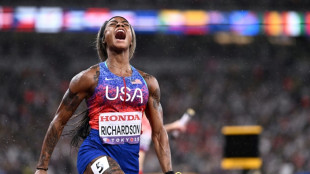
-
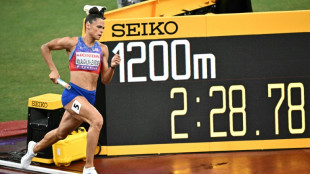 McLaughlin-Levrone claims second world gold in relay
McLaughlin-Levrone claims second world gold in relay
-
Reusser ends long chase for gold with women's world title
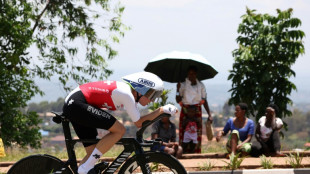
-
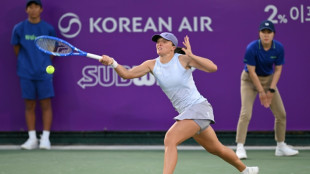 Swiatek recovers from slow start to win Korea Open title
Swiatek recovers from slow start to win Korea Open title
-
Hocker wins world 5,000m as Ingebrigtsen finishes empty-handed
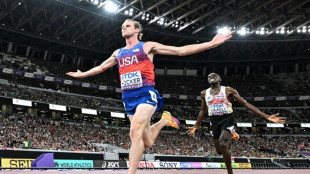
-
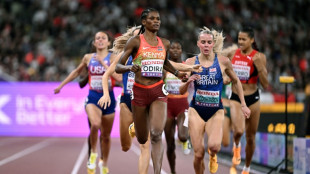 Kenya's Odira upsets Hodgkinson to win world 800m gold
Kenya's Odira upsets Hodgkinson to win world 800m gold
-
Kenyan duo Sawe and Wanjiru triumph at Berlin Marathon
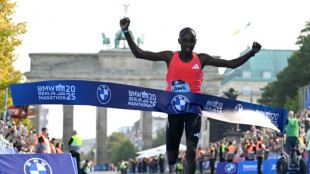
-
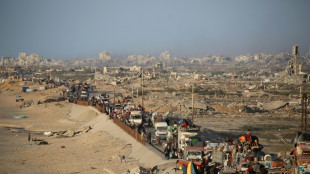 UK to recognise Palestinian state ahead of UN debate
UK to recognise Palestinian state ahead of UN debate
-
Olympic champion An dominates in repeat China Masters badminton win
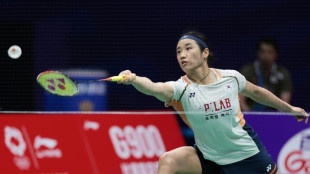
-
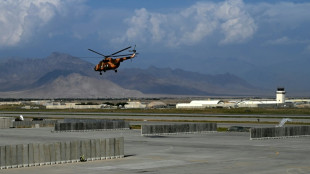 US deal on Bagram base 'not possible' says Afghan Taliban official
US deal on Bagram base 'not possible' says Afghan Taliban official
-
Kenya's Sabastian Sawe wins men's Berlin Marathon
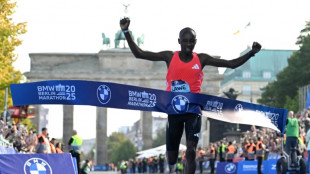
-
 One more world record from Duplantis and there's no Christmas party, jokes Coe
One more world record from Duplantis and there's no Christmas party, jokes Coe
-
Guinea votes in constitutional referendum boycotted by opposition
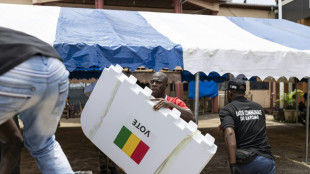
-
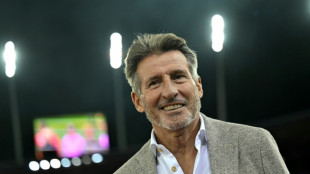 Athletics gene testing 'here to stay', warns Coe
Athletics gene testing 'here to stay', warns Coe
-
'Finally back home': Rebel octogenarian nuns reclaim Austrian convent
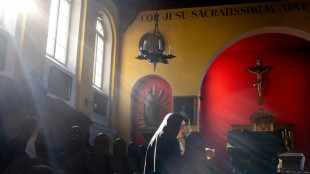
-
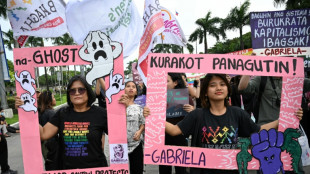 Evacuations in Philippines, Taiwan as super typhoon nears
Evacuations in Philippines, Taiwan as super typhoon nears
-
Peru anti-government protesters clash with police
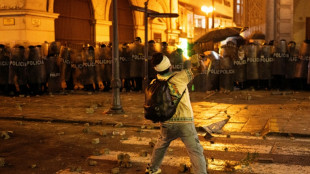
-
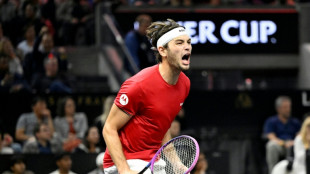 Fritz topples Alcaraz as Team World surge into Laver Cup lead
Fritz topples Alcaraz as Team World surge into Laver Cup lead
-
Fiji beats Japan 33-27 in Pacific Nations Cup rugby final
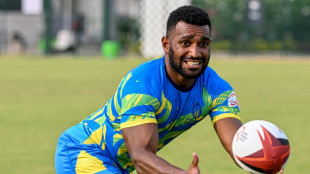
-
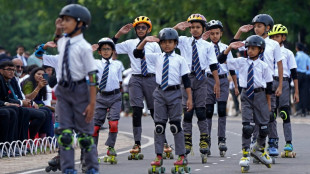 India's school of maharajas now educating new elite
India's school of maharajas now educating new elite
-
With cash and aid, Saudi Arabia pursues soft power push in Syria

-
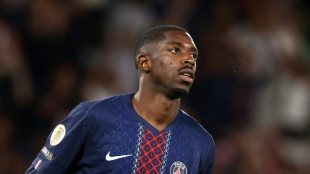 PSG star Dembele tipped to beat Yamal to win Ballon d'Or
PSG star Dembele tipped to beat Yamal to win Ballon d'Or
-
Guinea to vote in constitutional referendum boycotted by opposition
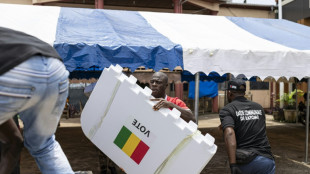
-
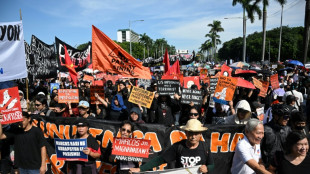 Thousands take to streets as Philippines protests flood control fraud
Thousands take to streets as Philippines protests flood control fraud
-
Raleigh sets homer mark for Mariners in MLB win at Houston

-
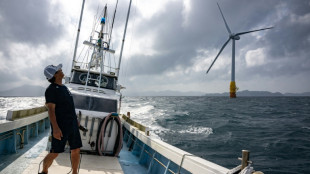 Floating wind power sets sail in Japan's energy shift
Floating wind power sets sail in Japan's energy shift
-
Crowd buzz in Tokyo makes up for Japan track and field flops
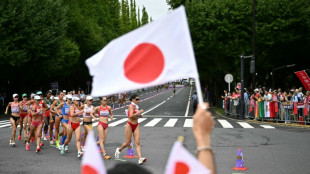
-
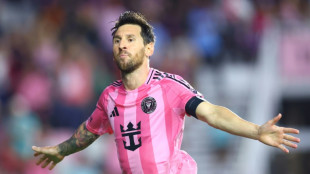 Messi brace lifts Miami in 3-2 MLS win over DC United
Messi brace lifts Miami in 3-2 MLS win over DC United
-
Apprentices breathe new life into historic Savile Row

-
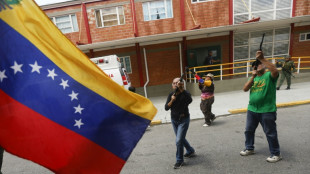 Venezuela offers military training to public amid Trump threats
Venezuela offers military training to public amid Trump threats
-
In New York, an anti-fascist superhero rises -- at the Met

-
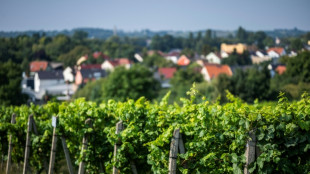 Warmer climate boosts north German vineyards, for now
Warmer climate boosts north German vineyards, for now
-
Trump issues vague threat to Afghanistan over Bagram air base
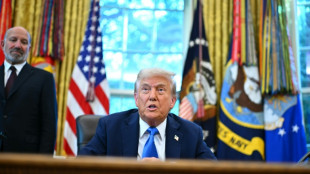
-
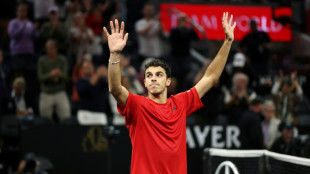 De Minaur, Cerundolo propel Team World to Laver Cup lead over Europe
De Minaur, Cerundolo propel Team World to Laver Cup lead over Europe
-
Duplantis and McLaughlin-Levrone lit up world championships
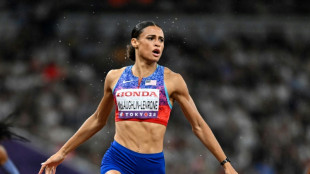
-
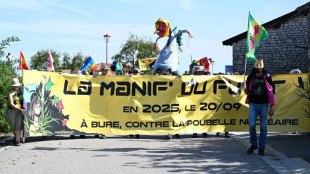 French nuclear waste project sparks protest
French nuclear waste project sparks protest
-
Man Utd made win over Chelsea too 'complicated' says Amorim
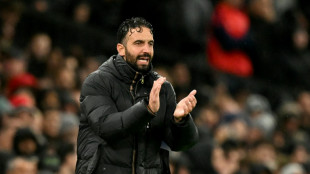
-
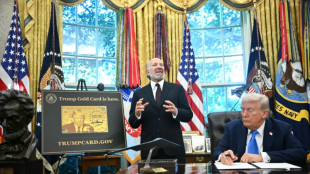 White House says $100,000 H-1B visa fee to be one-time payment
White House says $100,000 H-1B visa fee to be one-time payment
-
'Shocked, devastated': Gaza City assault leaves Palestinians traumatised
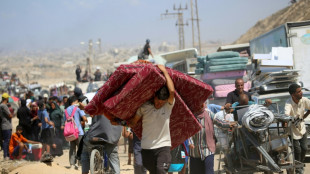
-
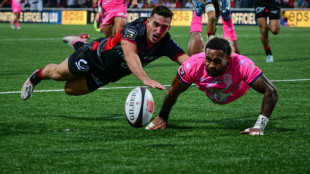 Lyon edge Stade Francais in wild try-fest to stay top in France
Lyon edge Stade Francais in wild try-fest to stay top in France
-
Russia's USSR-era rival to 'decadent' Eurovision born anew

-
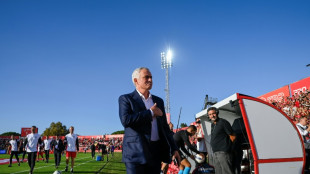 Mourinho celebrates Benfica return with convincing win
Mourinho celebrates Benfica return with convincing win
-
Man Utd earn vital win against Chelsea as Liverpool stay perfect
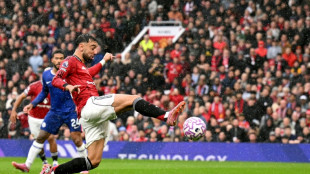
-
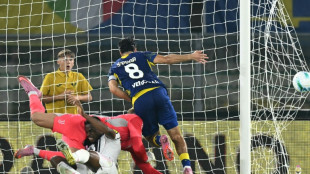 Juventus climb top in Italy with draw at Verona
Juventus climb top in Italy with draw at Verona
-
Mitchell hails 'phenomenal' Kildunne as England reach World Cup final


World Bank's IFC ramps up investment amid global uncertainty
While the world economy faces instability from US President Donald Trump's threats of a global trade war, the International Finance Corporation (IFC) is dramatically ramping up its investment activities.
The Washington-based IFC -- the World Bank's private sector arm -- mobilizes private capital and provides financing to support businesses across emerging economies.
Though not widely known outside development circles, the organization plays a crucial role in creating jobs and supporting growth in less developed regions.
"The world economy has been going through a bit of a turbulent time, but what I must say is that even though there is turbulence... we are seeing a lot of interest in investing in emerging countries," Makhtar Diop, the IFC's managing director, told AFP.
This optimism is backed by concrete numbers. In the fiscal year ending June 30, preliminary data shows that the IFC committed over $71 billion -- nearly double its commitment from just three years ago and a significant jump from last year's record of $56 billion.
The investment spans the globe, with more than $20 billion flowing to Latin America, $17 billion to Asia, and $15.4 billion to Africa.
The dramatic increase stems from a deliberate strategic shift.
Diop, an economist and former Senegalese finance minister, explained that the IFC has focused on becoming "simpler, more agile, and delegating decision-making to our teams that are in the field."
This approach abandons the over-centralized structure that previously "was slowing down our ability to respond and seize new opportunities."
The timing is significant. As Western economies pull back from direct aid to developing countries -- constrained by mounting debts, rising defense budgets, and increasingly inward-looking politics -- the IFC has accelerated.
"It's totally understandable that they have fewer resources to make available in the form of grants to developing countries," Diop acknowledges.
However, he emphasized that World Bank funding for the world's poorest countries remains fully replenished, calling it "the most efficient and best way to support countries."
The IFC's expanding role within the World Bank Group is evident. Today, its funding nearly matches the support the bank provides directly to governments, making it an equal partner in development efforts.
- Dubai to Africa -
The organization is also attracting new types of investors.
Many co-financing partners now come from regions that traditionally haven't invested outside their home areas. The IFC's largest renewable energy investment in Africa, for example, was completed with a Dubai-based company.
These investors trust the IFC not only for its market knowledge but also for the risk-mitigation tools it offers, Diop said.
In Africa particularly, the IFC pursues a strategy of identifying and supporting "national champions" -- successful local companies that need help to become more competitive and globally integrated.
A significant portion of the IFC's mandate involves sustainability projects, an area where Diop decries debates with false choices between economic development and the environment, especially in electricity projects that form an important part of the agency's portfolio.
"It happens that today, you don't have to make that trade-off because the sustainable solutions are often the cheaper ones, and that's the beauty of what we are seeing," he said.
While fossil fuel generation remains part of the energy mix to ensure grid stability, the economics increasingly favor clean alternatives.
Behind all these investments lies an urgent demographic reality: 1.2 billion young people will reach working age in developing countries over the next decade.
For the World Bank, creating employment for this massive cohort is paramount.
"The first question of any leader you meet from the developing world is how can you help to create jobs for young people?" Diop observed.
Beyond infrastructure development that stimulates broader economic activity, Diop identifies tourism, pharmaceuticals, and agriculture as the most promising sectors for job creation.
These industries can offer the scale and growth potential needed to absorb the coming wave of young workers entering the global economy.
E.Burkhard--VB
